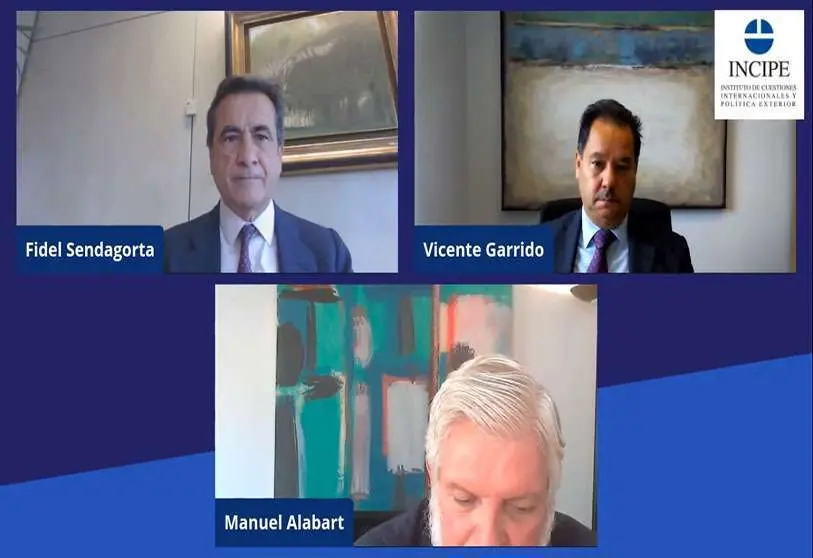Fidel Sendagorta: "China is playing its cards and Europe must learn to play its cards to defend itself"

The strategic challenges of our time lie in the confrontation between the United States and China over who gets world supremacy and what the mood of the West is with respect to China's behaviour, which has changed greatly in recent times, particularly since Donald Trump's arrival at the White House in 2016.
The first session of the series on major powers offered by the Institute of International Affairs and Foreign Policy (INCIPE) focused on how China is positioning itself as a global leader and what its power strategies are for achieving this.
In this activity, under the name "Power strategies in the China, United States and European Union triangle", the institute was attended by the Director General of Foreign and Security Policy at the Ministry of Foreign Affairs, European Union and Cooperation, Fidel Sendagorta.
Sendagorta, who has just published the book "Estrategias de poder. China, the United States and Europe in the age of great rivalry", referred to the question of power: "We must trust the question of power, because we are once again in an age dominated by power politics. Power politics is characterised by a more uninhibited use of power in all its forms".
China has become a superpower and is trying to wrest the label of 'Great Power' from the United States. Since Donald Trump's arrival in Washington, the West's perception of China was very different from what it is today. Today, Beijing is perceived as a risk.
Examples are Canada, which has given up on signing the free trade agreement with Beijing, and Australia, which has always been close to China but has recently been very critical of the Asian country. The United States' strategy is to disconnect the American economy and, if possible, that of its allies, from China, but the Anglo-Saxon West is powerless to prevent China from becoming the superpower.
In a context in which transatlantic relations, particularly between the US and the European Union, are coming closer than ever, China appears to have great power, "which is an economic power", said Sendagorta. "In 2000, China's economy was similar to Italy's and 20 years later it has ten times the gross domestic product and is close to America's," he stated.
With these data, it is evident that Beijing is a danger to American hegemony, which has been losing its place on the world's podium.
And this has been partly due to China's strategy, which is based on two pillars: 'Made in China 2025', a programme to place itself at the head of the ten leading technologies of the day and become the leader of the technology sectors; and the new Silk Road, or as Beijing has called it, "The Strip and the Road".
"Promoting the economic integration of the entire Eurasian continent and its Pacific coastline, through this great Chinese market, will be thanks to economic integration", the Director-General pointed out.
This objective of becoming the great world nation is based on three legs. "China's leadership coincides with the decline of the United States; China has been building an economy that is less dependent on the whole world and depends more on a market of its own; and the great weight of Chinese nationalism", argued Sendagorta.
Today, the game board for achieving the hegemony of power is in the field of technology. "They are the basis of the new economy and have a defence component, and whoever masters these new technologies could end up taking the leap to technological supremacy", he stressed.
In this background, the role of the European Union becomes somewhat ambiguous. "The European reaction has been late, but it has been remarkable. Europe is directly affected by China's power, through investments in sectors considered to be strategic", said Sendagorta, who also pointed out that Europe needs the unity of the 27 countries in order to establish an equal relationship with powers such as the United States and China.
The speed of the reaction to the economic crisis caused by the COVID-19 pandemic "has given us confidence and makes us more confident in taking on these geopolitical challenges and in having the courage and conviction that we have significant assets".
Europe "is interested in Chinese investments, but not unconditionally, we are interested in preserving certain strategic sectors", said the Director General of the MAEC.








